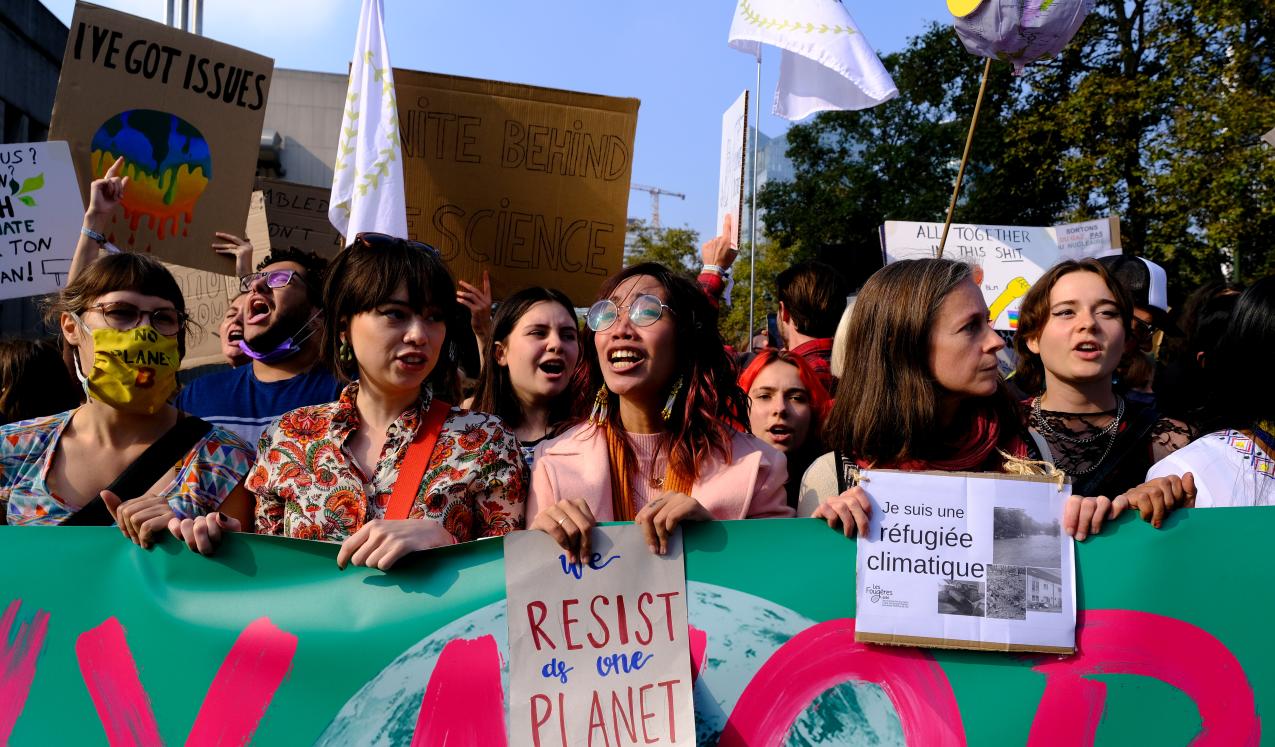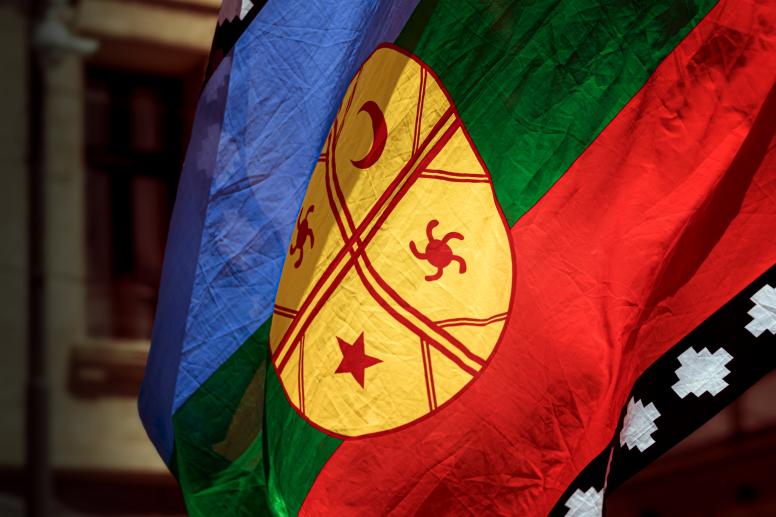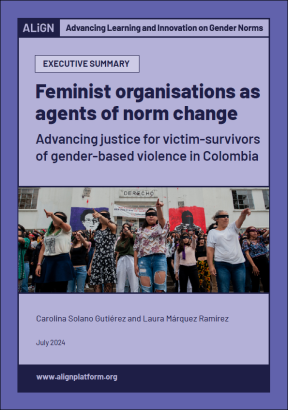
- Blog
- 9 novembre 2021
Gender Day at COP26: We must listen to women building environmental movements
- Author: Diana Jiménez Thomas Rodriguez
- Published by: ALIGN
It’s Gender Day at COP26 and the diverse groups of women who lead and sustain environmental justice movements are calling for their voices to be heard. Their case is simple: discussions about the environment cannot exclude their demands any longer. As countries negotiate how to contain the climate crisis, it is crucial that their alternative visions of environmental and climate justice are recognised – not just today, but from now on.
COP26 in Glasgow is seizing global attention for two weeks while world leaders discuss emissions reductions strategies and climate finance pledges. But, far more is required to guarantee environmental stability. Environmental justice movements have long held that averting planetary ecological breakdown demands profound political changes. Not just of how we conceive of progress, development and well-being, but of the very globalised economic systems that drive production, consumption and resource extraction. They also understand how climate change is linked to other environmental concerns such as water and land pollution, desertification, monoculture forestry, biodiversity loss, water scarcity, and deforestation, as well as the need to leave fossil fuels and metals in the ground. That is why socio-environmental movements are the central agents pushing transformations towards environmental and climate justice.
‘The Earth is speaking. She tells us that we have no more time.’
Txai Suruí, Indigenous Amazonas activist at COP26.


©Toby Parkes/Shutterstock/2070571724
Within these environmental justice movements, women – indigenous, non-indigenous, middle-class, working-class, afro-descendent, young and old – are emerging as leaders and the majority of members. Their growing prominence as environmental defenders is evident in the number of women that have received environmental awards that recognise grassroots activists – such as the Goldman Environmental Prize, where 19 out of 24 recipients since 2018 have been women.
I have researched the work of two environmental movements in North and South America. In contrast to narratives that simplify or romanticise women’s participation in environmental justice movements, my research has shown that diverse groups of women are often prompted to act by prevailing gender norms in their contexts.
Mayan women at the heart of the struggle against Monsanto
In Campeche, Mexico, from 2010-2018 Mayan women were at the heart of the community struggle against Monsanto’s genetically modified (GM) soybean, achieving national prohibition of this seed. Their opposition was based, largely, on the higher levels of glyphosate needed to grow GM soybean. This herbicide, used to control weeds during cultivation, had life-threatening impacts on the land, water, economy, well-being, culture and surrounding environment of Mayan communities.
Prevailing gender norms shaped the way in which Mayan women negotiated their participation in the mobilisations against GM crops. As in many other parts of the world, gendered divisions of labour within their communities categorise domestic work as women’s responsibility. Whether because domestic work is considered more flexible than agricultural work, or because it is often not even considered as a form of labour, women were encouraged to go and represent their families in the movement as they were thought to have more free time to attend meetings than men.
While some Mayan women specifically framed their participation as a way to promote gender equality in their communities, all women appealed to existing gender roles when explaining their participation - something that Spivak calls ‘strategic essentialism’. They claimed to be more sensitive, attentive, responsible, caring, and less susceptible to corruption than men – qualities that, they said, emerged from their experiences of being a woman.
Yet, Mayan women also claimed to be better suited for political activism by appropriating so-called ‘masculine’ attributes. One Mayan woman argued that she was well-suited to political struggles, and braver than her husband, because of the gender-based violence she had endured throughout her life. As a result of their activism Mayan women were not only instrumental in halting the cultivation of GM soybean in Mexico, but also began to claim authority within their communities, promoting greater appreciation of what has been considered ‘feminine’.


Argentinian and Mapuche women defend their land from mining
In the Patagonian province of Chubut in Argentina, indigenous and non-indigenous women alike have sustained struggles against mining for almost 20 years. In fact, they have succeeded in keeping open-pit mining and its disastrous social and environmental consequences out of the province.
The Assemblies of Neighbours against Mining, a collection of citizens’ assemblies now located in almost every city and town of the province, has been on the frontline of this struggle. In the Neighbour Assembly of Esquel – the town where the resistance against mining began in 2002 – women have become the organisational nucleus of the movement. While there was originally a mixed-gender membership in its early days, the core of the movement has become increasingly female. This has been largely due to Argentina’s strong history of women’s political participation, as well as the inspiring leadership of two female university professors at the movement’s inception.
The participation of women in Esquel’s anti-mining movement has also been prompted by prevailing gender norms. Female members suggest they are more committed, patient and resilient than men – qualities they say have been developed in reaction to their need to struggle against gender inequality. Again, gendered divisions of labour have also partly underpinned women’s participation. Many women argue that having been in charge of care work has given them the skills needed to remain motivated and active over time, performing the everyday and constant caring work needed to sustain the movement and defend their community.
Mapuche-Tehuelche women have not only participated in Neighbour Assemblies throughout the years, but also in the occupation and protection of their ancestral indigenous territories across Patagonia. Leader Moira Millán, for example, has successfully organised resistance against a hydroelectric dam, La Elena, set to be built in Mapuche-Tehuelche territory. If built, the dam would sacrifice the River Carrenleufú and cover around 11,000 hectares of native forest in water: a great provocation, given that it is intended to provide electricity for future mining enterprises in the region.
Moira Millán, and the Movimiento de Mujeres Indigenas por el Buen Vivir (Movement of Indigenous Women for the Good Life), has coined the term terricidio (terricide) to describe the lethal consequences of our current economic and political system on all forms of life. This is one of many conceptual contributions made by indigenous women across the continent. For example, by speaking of cuerpo-territorio (body-territory), Mapuche-Tehuelche women, as well as other indigenous women, offer a reading of present environmental collapse as a result of patriarchal paradigms of domination, where violence against nature mirrors men’s violence against women. This concept also alludes to how colonial concepts of progress and development have necessitated the exploitation of nature and women’s bodies alike.
No climate justice without gender justice
These movements reflect a growing worldwide trend of women stepping into political leadership and building socio-environmental movements. Contrary to a common narrative, this trend does not reflect women’s innate closeness to nature. Rather, their motivations vary across contexts, as do the narratives they use to frame and sustain their activism.
‘We don’t need hope, we need action’
Mitzi Tan, Coordinator of Fridays for Future, Philippines at COP26.
For leaders at COP26 to truly halt ecological breakdown, they need to address the problems these movements are campaigning and resisting against – industrial agriculture, mining, logging, hydroelectric power, and polluting industries. Ignoring the knowledge, analyses and demands of environmental justice movements – and the women leading them - will limit the scope of the solutions offered. Moreover, in many cases, movements in the Global South are resisting industries funded by high-income countries. As such, it is crucial that leaders at COP26 assume responsibility and discuss how these projects can be halted. If this is not done, leaders at COP are perpetuating a triple workload for women (adding activist work to domestic work and paid work) and further increasing their exposure to violence. Meeting the demands of environmental justice movements is thus not only crucial for the environmental integrity of the world’s territories, for a fair and just planetary future for all. This includes solutions which integrate gender justice for the women currently protecting their communities and lands.
‘When you are born as indigenous peoples, you don’t have a choice. You need to fight – it’s your life.’
Txai Suruí, Indigenous Amazonas activist at COP26.


About the author
Diana Jiménez Thomas Rodriguez is a PhD candidate in International Development at the University of East Anglia and the University of Copenhagen. Her doctoral research looks at the movement of No a la Mina in Esquel (Argentina) from a feminist political ecology lens. She also holds an MPhil degree in Development Studies from the University of Oxford, where she was a Weidenfeld-Hoffman Scholar. She is a co-founder of various feminist initiatives in Mexico.
- Tags:
- Climate change, Social movement
- Countries / Regions:
- Global, Latin America
Related resources
Blog
19 décembre 2024

Report
30 septembre 2024

Report
4 septembre 2024
